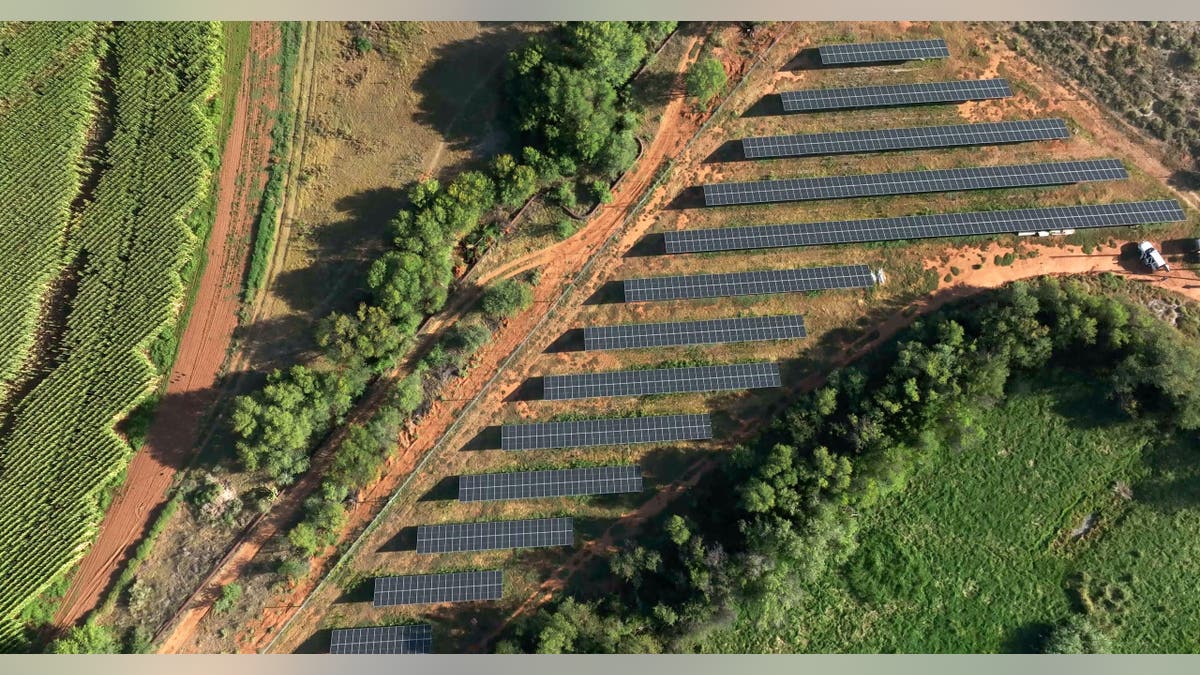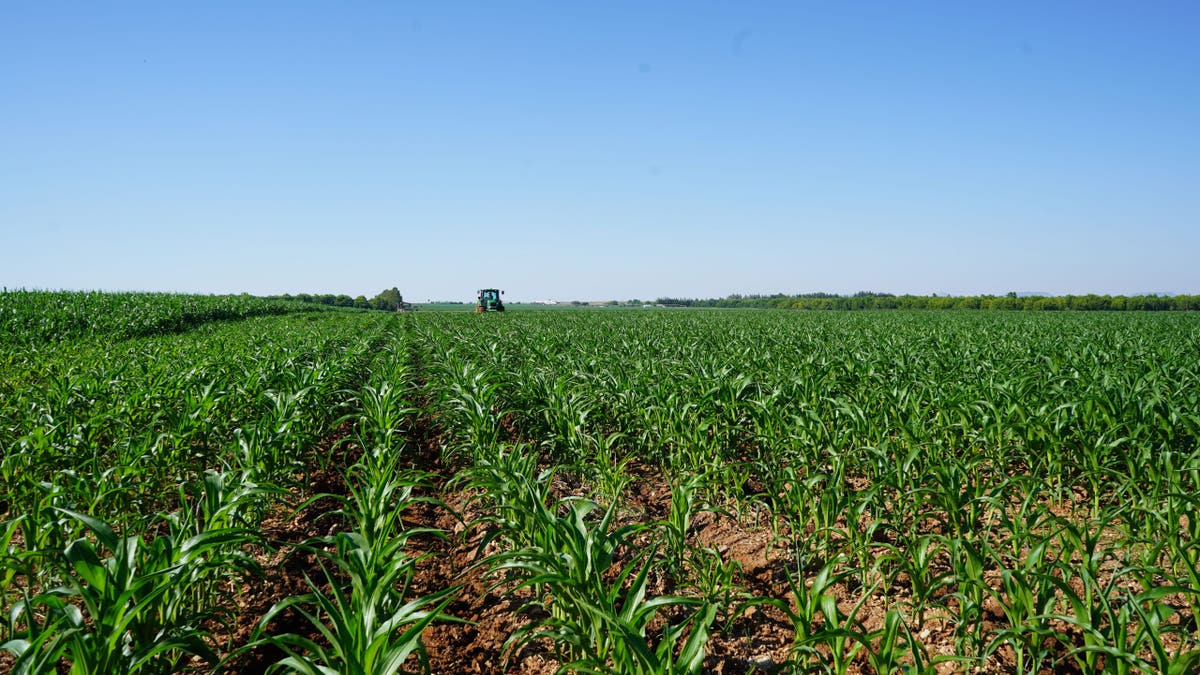
With a growing population of 3,000 people Orania is seeking U.S. support to become a fully autonomous area in South Africa. (Video courtesy: Orania Movement.)
FIRST ON FOX: The U.S. and South African groups have started to take action to “improve” the lives of Afrikaners, descendants of white, mostly Dutch settlers, after President Donald Trump said they could settle in the U.S. as refugees.
On Friday, President Trump lashed out again against the South African government for its treatment of farmers, many, but not all of whom, are Afrikaners, positing on his Truth Social media platform via X, “they are taking the land of white Farmers, and then killing them and their families.”
The State Department told Fox News Digital about new moves it is making. At the same time, the Afrikaner Orania Movement, an Afrikaner settlement, has stated its desire to be treated by the U.S. as a state within a state in South Africa.
TRUMP FREEZES AID TO SOUTH AFRICA, PROMOTES RESETTLEMENT OF REFUGEES FACING RACE DISCRIMINATION
This has led to often heated discussions about Afrikaners, and, up until now, no details from the U.S. side. But now there’s real movement, not just talk, taking place.
“The U.S. Embassy in Pretoria (South Africa) is reviewing inquiries from individuals who have expressed interest to the Embassy in refugee resettlement to the United States and has begun reaching out to some individuals to schedule and conduct informational interviews,” the State Department told Fox News Digital.
According to the nongovernmental South African Chamber of Commerce in the U.S., as of last month, 67,042 South Africans have expressed interest in the refugee offer, but the State Department told Fox News digital, “We do not have anything to share on numbers of participants at this stage of the process.”
There’s also been a flurry of flights across the Atlantic to Washington by groups looking to get the White House’s, and ultimately the president’s, attention.
First was the political group AfriForum, widely credited with alerting President Trump to the need for “humanitarian relief” for Afrikaners.
Among other organizations making the trek to D.C. was the Cape Independence Advocacy Group, which says Cape Town and some of the surrounding areas should become a state separate from the rest of South Africa.
But perhaps the Orania Movement’s trip to Washington, and its request for U.S. help, is of most interest.
“Help us Here,” is the slogan Orania CEO Joost Strydom declared to Washington insiders.
SOUTH AFRICAN PRESIDENT SIGNS CONTROVERSIAL LAND SEIZURE BILL, ERODING PRIVATE PROPERTY RIGHTS

Orania has a population of 3,000 people. Its leaders have been lobbying the U.S. in the hope it will get support for its campaign for autonomy. (Riaan Badenhorst/Orania Movement)
Orania is a small but rapidly growing settlement of 3,000 Afrikaners in South Africa’s Karoo region. Strydom told Fox News Digital those settlers don’t want to become refugees in the U.S. but are seeking Washington’s support to become truly autonomous in Africa “not necessarily with U.S. tax dollars, but with recognition with our pursuit of a national home for Afrikaners.
“Orania’s goal is to grow and protect the safety and freedom of Afrikaners. If we can make decisions for ourselves, we can look after our own safety and prosperity. If we are free, we are safe.
“We are a people of Africa, we belong here. We have no other home. On a personal note, my great-grandfather came to Africa in 1676, 100 years before the U.S. declaration of independence.”
Founded in 1988, Orania claims it’s entirely white, Afrikaner population is growing at an average of 10-12% a year, with a growth in business projects of 26%. It has its own water purification and solar power systems. In one of the driest parts of South Africa, Orania’s farmers are successfully developing corn, wheat, pecan nuts, almonds and livestock.
Orania has built its own Afrikaans language schools and a college and has plans to open its own university.

Orania has its own solar power systems. (Riaan Badenhorst/Orania Movement)
The Orania delegation went to Washington, Strydom said, due to “the fact that President Donald Trump gave us recognition as a people, the Afrikaners. (It) made it very important for us to hasten our already-planned U.S. liaison tour to liaise with Afrikaner and American supporters of the Orania idea in the U.S.
TRUMP, SOUTH AFRICA IN GROWING ROW OVER HOTLY CONTESTED LAND LAW, COUNTRY’S DEALS WITH US FOES
“We had meetings with officials upon invitation and discussed substantive matters in depth, which, for the sake of an ongoing conversation and our honor towards newfound contacts, we will only specify publicly later.”
The South African government has attacked those who have gone knocking on Washington’s doors.
“These groups do not represent the majority of South Africans, whether it’s the Orania movement or it’s AfriForum or it’s this Cape Independence Advocacy,” the presidency spokesperson Vincent Magwenya told reporters March 20.
The State Department spokesperson made the administration’s viewpoint clear to Fox News Digital this week.
“Through his executive order, the president has taken steps to hold the government of South Africa accountable for the violation of Afrikaner rights and has instructed the administration to prioritize humanitarian relief for Afrikaners who are victims of unjust racial discrimination,” the spokesperson said.

Orania’s farmers grow corn, wheat, pecans and almonds and also raise livestock. (Riaan Badenhorst/ Orania Movement)
CLICK HERE TO GET THE FOX NEWS APP
Hanli Pieters, who works at Bo-Karoo Opleiding, Orania’s college, is proud of being an Afrikaner and told Fox News Digital she wants to stay in Orania.
“I choose to live in Orania because it offers what so few places can — a safe and purposeful future for Afrikaners. Here, I can live, pray without fear and speak Afrikaans not as a formality, but as the heartbeat of my daily life. We take hands as a community to build, to work and to grow. Orania is where Afrikaner identity becomes legacy.”
Fox News Digital reached out to the South African government for comment but had not received a response at the time of publication.